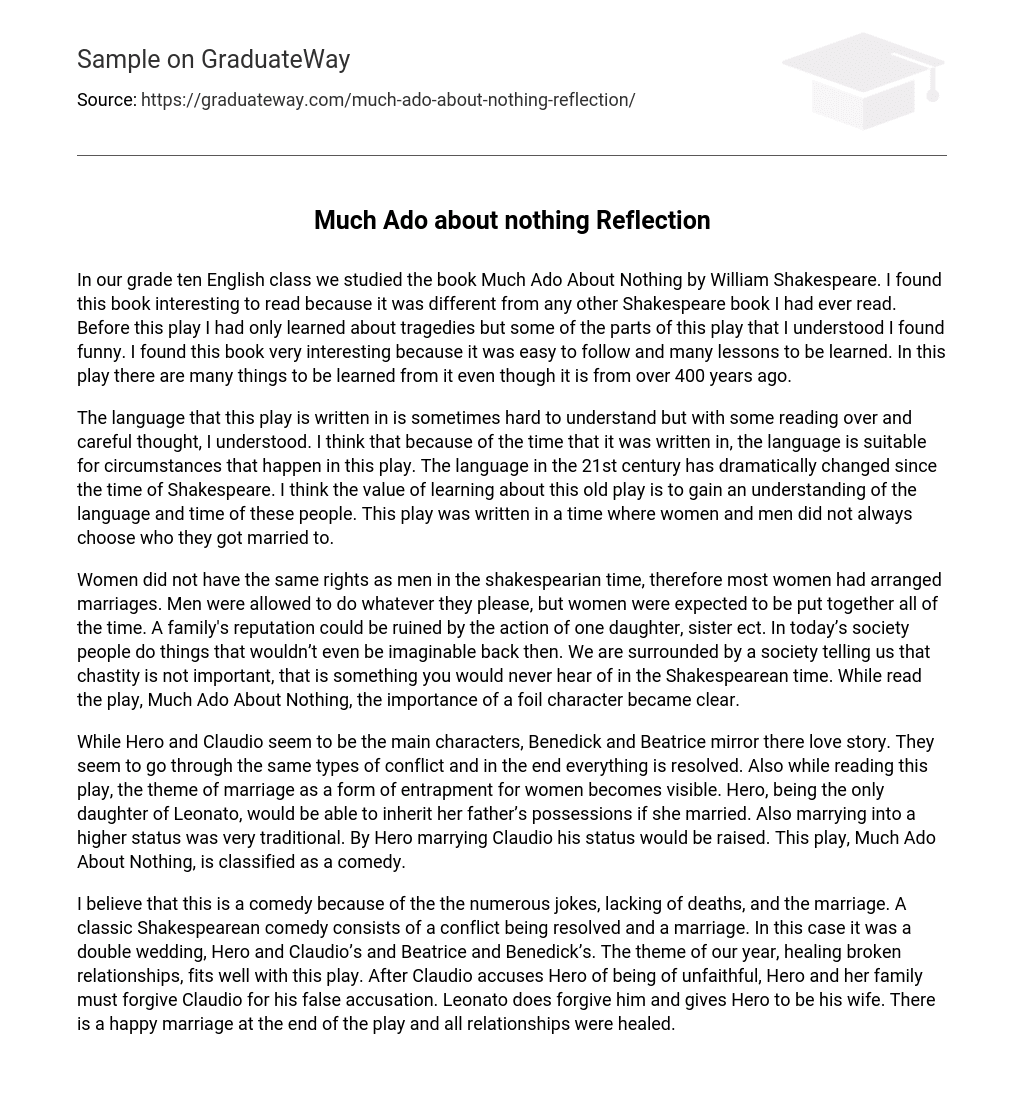In our grade ten English class, we studied Much Ado About Nothing by William Shakespeare. This book caught my attention because it was different from the usual tragic stories I had encountered in Shakespeare’s works. Despite being familiar with tragedy, this play entertained me with its interesting plot and clear moral lessons. It was truly an engaging reading experience. Despite being written over 400 years ago, this play still offers valuable teachings that are worth taking in.
Despite the challenging language used in this play, I was able to comprehend its meaning through perseverance and thoughtful contemplation. The play’s language aligns well with the depicted situations, taking into account the time it was written. In contrast, our 21st-century language has experienced substantial transformations since Shakespeare’s era. By delving into this ancient play, we can acquire understanding of both the language and societal conventions of that period. It is essential to acknowledge that during this time, marriage partners were not always selected based on personal preference.
During the Shakespearean era, women lacked equal rights as men and often had to enter into arranged marriages. Men enjoyed freedom while women were expected to be composed at all times. The behavior of a daughter or sister could easily damage a family’s reputation. In contrast, today’s society witnesses behaviors that would have been unimaginable in Shakespeare’s time. Our contemporary culture places less importance on chastity, which was highly valued in the past. As I read “Much Ado About Nothing,” I noticed the significance of a foil character.
Although Hero and Claudio are portrayed as the main characters in Much Ado About Nothing, Benedick and Beatrice’s love story mirrors theirs. Both couples face similar conflicts and eventually find resolution. Additionally, the theme of marriage as a form of entrapment for women is evident throughout the play. As Leonato’s only daughter, Hero stands to inherit her father’s possessions upon marriage. Marrying into a higher social status is also a traditional practice. When Hero marries Claudio, his status is elevated. Ultimately, Much Ado About Nothing is categorized as a comedy.
The text suggests that this play falls under the genre of comedy due to the abundance of jokes, absence of deaths, and inclusion of a wedding. In keeping with traditional Shakespearean comedies, the plot revolves around resolving a conflict and culminates in a marriage. Specifically, there are two weddings: one between Hero and Claudio, and another between Beatrice and Benedick. The play’s theme of healing broken relationships aligns seamlessly with our year’s theme. After Claudio falsely accuses Hero of infidelity, Hero’s family forgives Claudio and allows him to marry her. Ultimately, the play concludes with a happy marriage and the restoration of all relationships.





